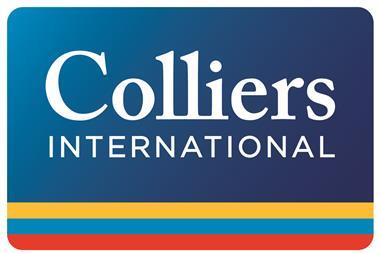After all the recent speculation about potential mergers and acquisitions in the agency world, this week saw a demerger - with the announcement Colliers International is splitting from its parent company FirstService Corporation.

Making Colliers a separate listed company will clearly raise the profile of the group, which had lived in the shadow of FirstService to a certain extent, and the move was accompanied by the bold statement that Colliers is now one of the “top three global leaders in commercial real estate”.
That may be so, but it currently lags a long way behind the top two. CBRE and JLL, the two Colliers would supposedly be joining at the top table, are both much, much larger. CBRE generated some $9bn of revenue last year and JLL made more than $5bn. Colliers’ revenue stands at a relatively modest £1.7bn. That places it firmly in the second tier, with DTZ and Cushman & Wakefield.
It has undoubtedly been growing rapidly, especially in Europe, which 10 years ago only accounted for 5%-6% of its overall revenue but now accounts for more like 25%. Indeed, the firm claims it has grown faster than any other commercial real estate firm in the world over the past 10 years. But even if it continued to grow at the current rate, it would be some time before it was competing on a level playing field with the CBREs and JLLs of this world in terms of scale.
If that is what it aspires to, that is. Colliers’ line is that it simply wants to be among the top tier and to be perceived in the same way as one of the top four accountancy firms are - everyone being able to name them, but few knowing or caring how they rank in relation to one another.
That is not to say that mergers and acquisitions are out of the question.
“If you look at the top five real estate firms, we only represent 14% of the overall market,” Colliers president and chief executive Doug Frye told Property Week. “Looking at accountancy, the top five represent 70%. There’s quite a bit of consolidation to go.”
A merger or acquisition would certainly make a lot of sense for the business. Having acquired West End specialists H2SO last year, surely it should be looking to develop a stronger presence in the City of London market, one of - if not the - hottest property markets around right now.
It will be interesting to see how quickly it makes a move. After all, it wasn’t long after DTZ’s demerger from UGL last year that its new private equity owners acquired Cassidy Turley and merged the two, substantially increasing the size of its operations in the US.
That demerger, of course, was prompted by the poor performance of UGL’s engineering arm, which begs the question of what now will happen with Bilfinger and GVA. It looked like a good deal at the time, but Bilfinger has since issued a string of profit warnings that at the very least are likely to hamper its ability to invest in building the GVA platform.
The other one to watch will be Savills. Even after its shares climbed sharply following a better than expected trading update last month, Savills trades at a significant discount to its listed peers, prompting speculation that it could be a takeover target.
Whatever happens, you can be sure consolidation will be a hot topic in a heck of a lot of boardrooms this year.
New property award - we need your vote
The time has come. This week, in celebration of the 20th anniversary of the Property Awards, we reveal the long list of 20 developments in contention for the award for most innovative development of the past two decades, sponsored by James Andrew International. You can vote here.





























No comments yet